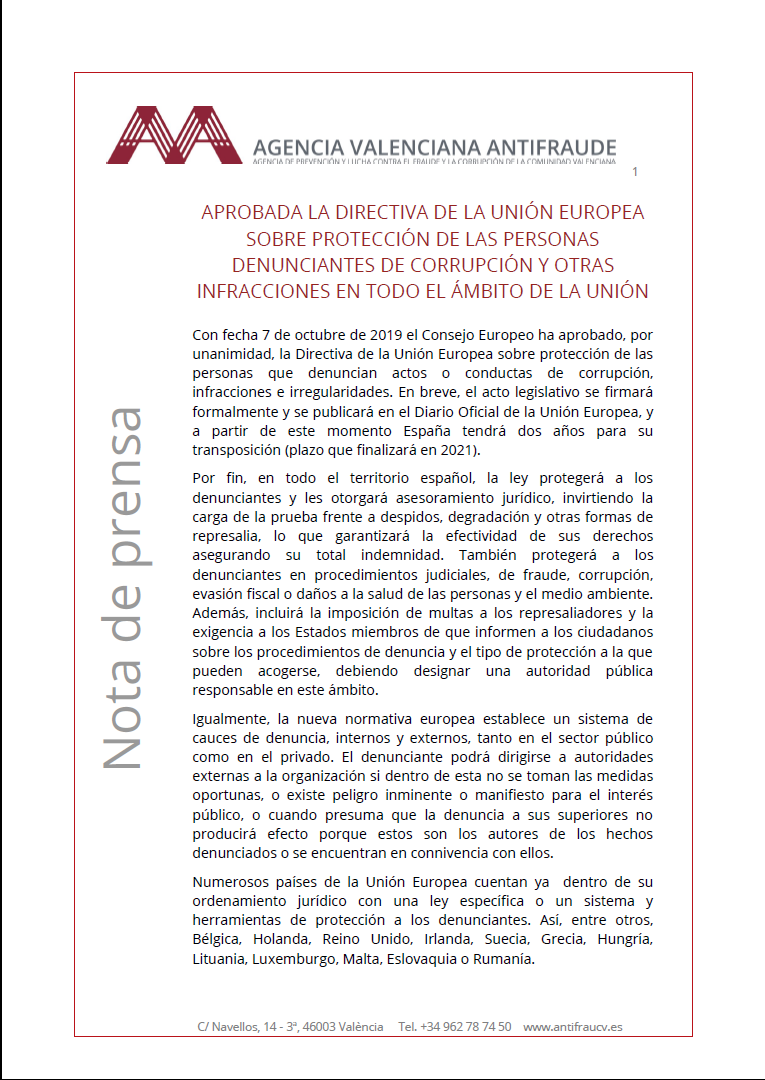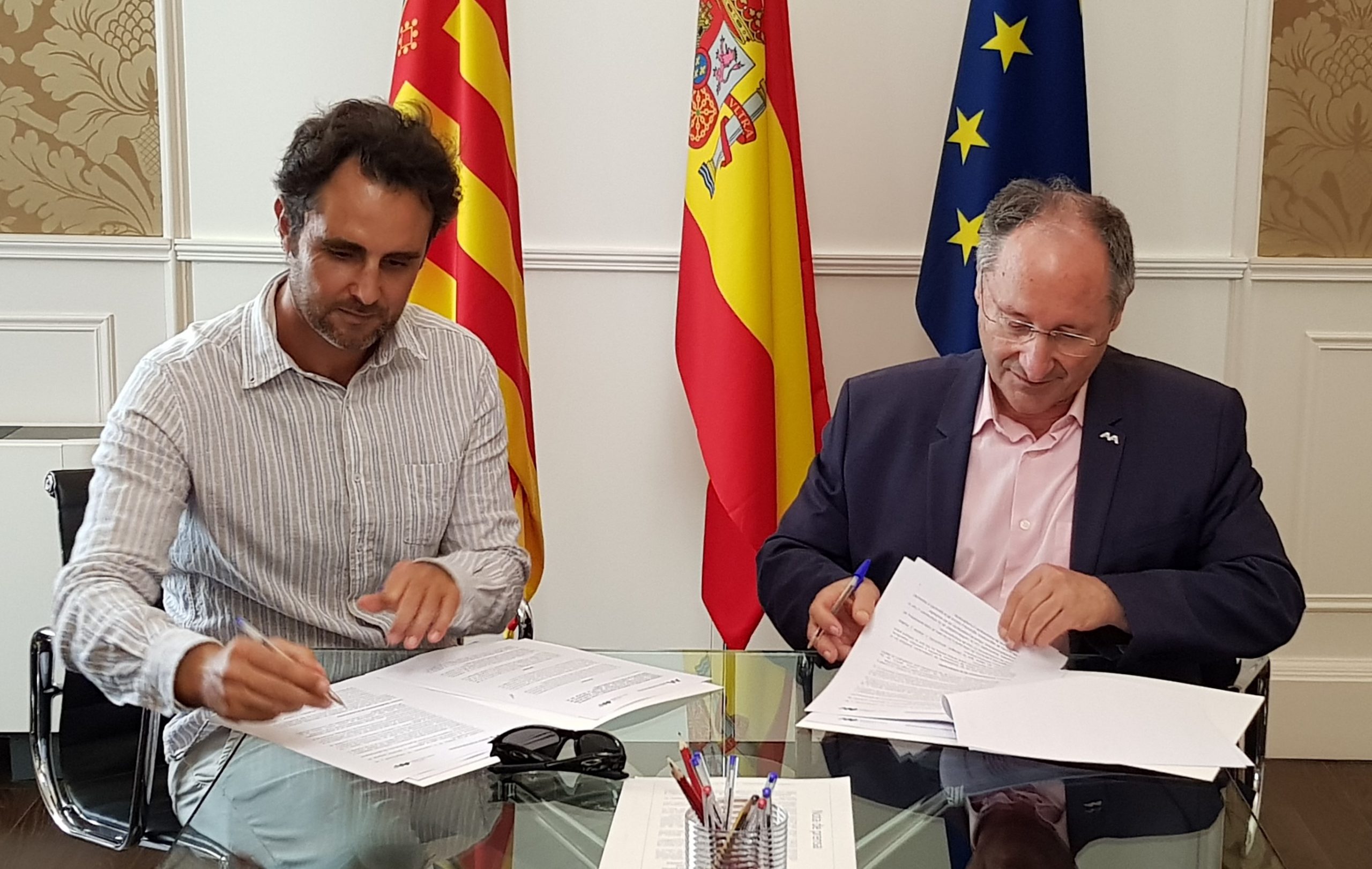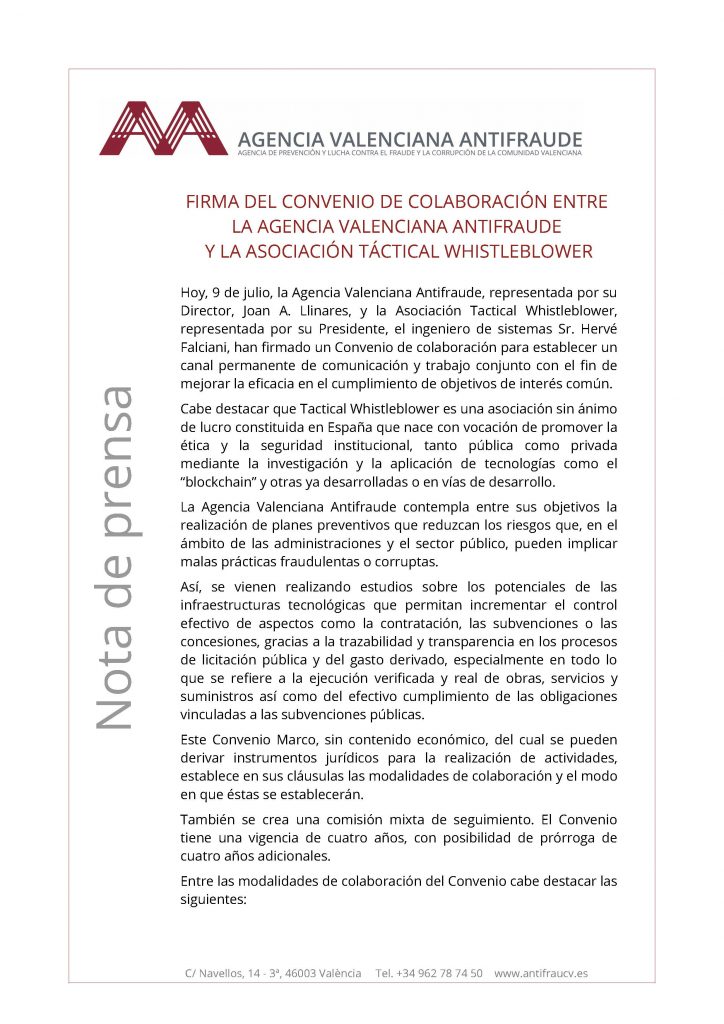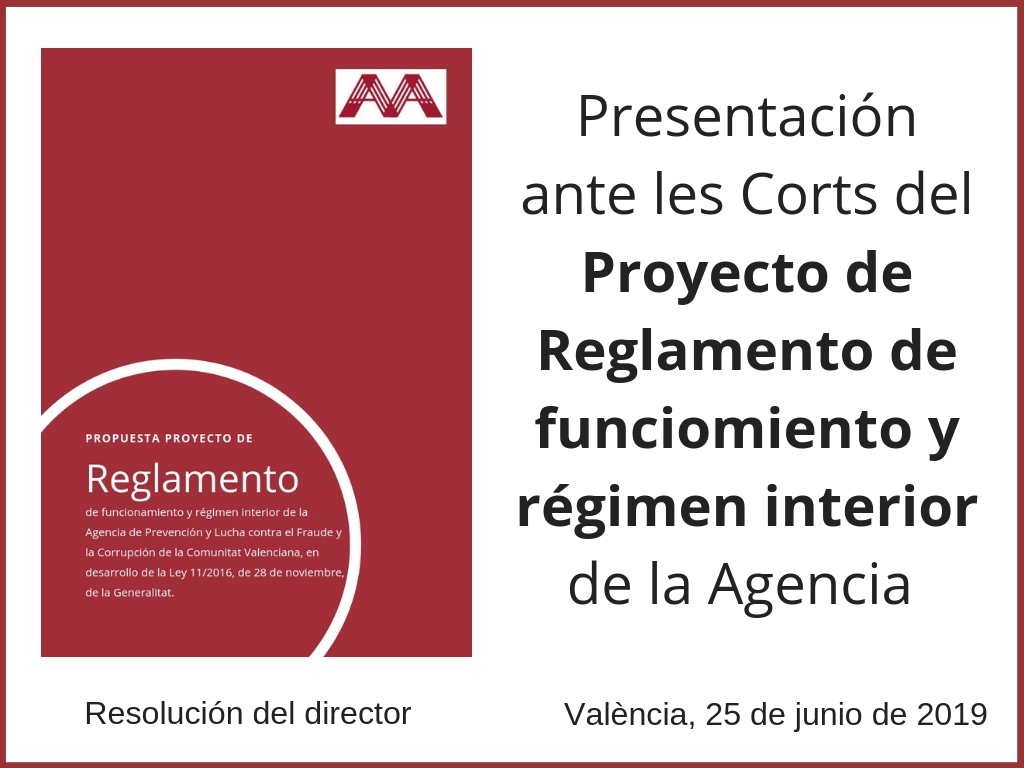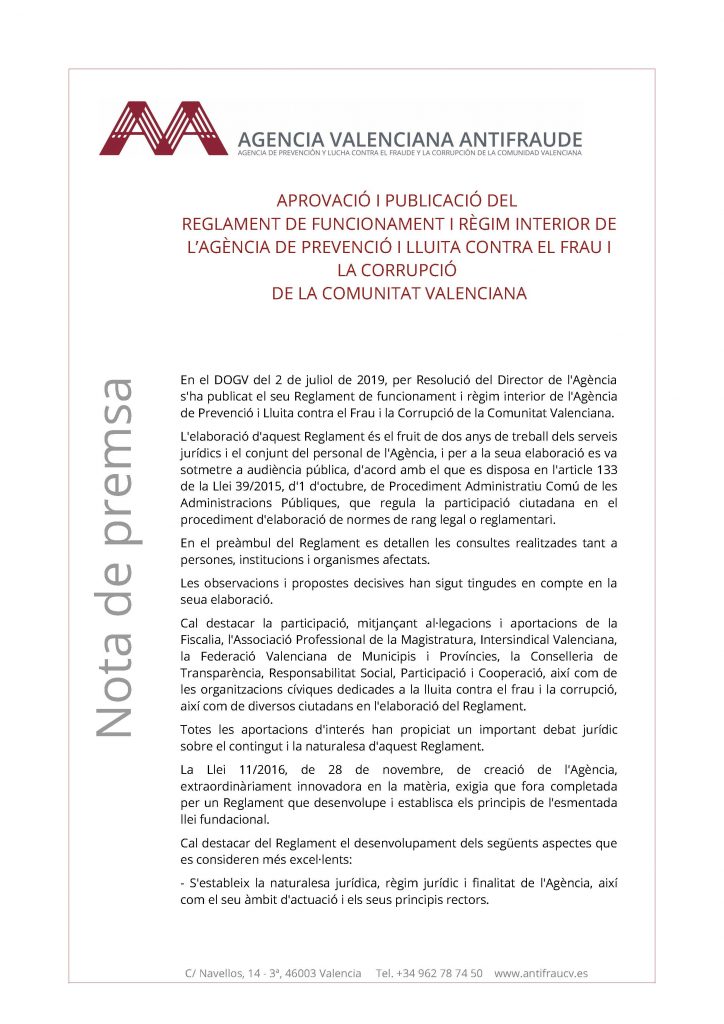On October 7, 2019, the European Council unanimously approved the European Union Directive on the protection of persons who report acts or conduct of corruption, infractions and irregularities. Shortly, the legislative act will be formally signed and published in the Official Journal of the European Union, and from this moment on, Spain will have two years for its transposition (term that will end in 2021).
Finally, throughout the Spanish territory, the law will protect the complainants and provide them with legal advice, reversing the burden of proof against dismissals, demotion and other forms of retaliation, which will guarantee the effectiveness of their rights ensuring their full indemnity . It will also protect whistleblowers in legal proceedings, from fraud, corruption, tax evasion or damage to the health of people and the environment. In addition, it will include the imposition of fines on retaliators and the requirement that member states inform citizens about the complaint procedures and the type of protection they can avail of, and must designate a public authority responsible in this area.
Likewise, the new European regulations establish a system of internal and external reporting channels, both in the public and private sectors. The complainant may contact authorities outside the organization if the appropriate measures are not taken within the organization, or there is an imminent or manifest danger to the public interest, or when he presumes that the complaint to his superiors will have no effect because they are the authors of the the facts reported or are in collusion with them.
Many countries of the European Union already have within their legal system a specific law or a system and tools to protect whistleblowers. Thus, among others, Belgium, Holland, United Kingdom, Ireland, Sweden, Greece, Hungary, Lithuania, Luxembourg, Malta, Slovakia or Romania.
Italy and France created their own national authorities against corruption and whistleblower protection, respectively, through laws of 2012 and 2016. These are institutions that act with full organic and functional independence from public administrations in the exercise of their functions, to which is attributed its own legal personality and full capacity to act for the fulfillment of its purposes, at the head of which is a president who is elected by the legislative body.
THE VALENCIAN COMMUNITY ADVANCES THE EUROPEAN DIRECTIVE
The Valencian Community anticipated the European Directive and the Spanish State itself, with the approval and entry into force of Law 11/2016, of November 28, of the Generalitat, of the Agency for the Prevention and Fight against Fraud and the Corruption, issued in compliance with the 2003 United Nations Convention; international convention that, despite having been ratified by the Spanish State and being part of our legal system since its publication in the Official State Gazette in 2006, has been inapplicable.
The Valencian Anti-Fraud Agency is the institution responsible in the Valencian Community for the protection and assistance to people who report corruption, endowed with sanctioning power to impose fines, ranging between 200 and 400,000 euros, to those who disturb their working life or whistleblowers, or hinder the Agency’s tasks.
Since the beginning of its activity in the second half of 2017, the Agency has protected nineteen whistleblowers; most of them public officials, whose complaints have led to the opening of criminal judicial proceedings that are in process.
In addition, the Agency performs functions of investigation of complaints, as well as prevention, training and awareness-raising in integrity and public ethics, in matters of public procurement and concessions, access and provision of public employment, subsidies, urban planning or public assets, derived from action of the public administrations of our territory (autonomous and local), and its public sector, contractors, concessionaires, recipients of subsidies and of any entity, even private, that receives public funds or is subject to the decision-making power of public administrations.
The Valencian Community, endowed with legislation that is even more advanced than the Directive itself, is the only one in the entire Spanish territory that grants protection status to individuals or legal entities, who denounce acts or conduct, presumably fraudulent or corrupt, that may give rise to the requirement of legal responsibilities, whether the complaint is filed with the Agency itself or any other administrative body, or with the Public Prosecutor’s Office or the judicial authority. For these purposes, the complainants are assimilated, all those who alert or reveal information of this type, as well as the witnesses and experts, and the relatives and people around them if they suffer risk of retaliation or threat as a result of the information. provided.
THE SECURE AND CONFIDENTIAL COMPLAINT BOX
Since May 2018, the Agency has made a secure and confidential complaint mailbox available to the public, which admits anonymous complaints, so that those who have knowledge of this type of facts or conduct, communicate it in order to proceed to your analysis and research. This mailbox also operates as a virtual portal for the public official. The mailbox can be accessed through the Agency’s own web portal www.antifraucv.es.
However, complaints can also be made by email, by regular mail or in person at the Agency’s offices at Calle Navellos, no. 14, pta. 3, of València, CP 46003.
Finally, it should be noted that the implementation of the Directive will result in important reforms in our legal system: it will not only require the approval of a specific law to combat corruption and its harmonization with regional legislation, in order to coordinate and cooperate with the structures that are in operation, but also the revision of the Organic Law for the protection of witnesses and experts in criminal cases, the Penal Code, the General Penitentiary Organic Law, the Criminal Procedure Law, and numerous regulatory norms of the sector private and certain areas of the public sector (regulations on competition, consumption, public health, food safety, transport security, money laundering, terrorism, personal data, etc.).
RULES AND RELATED DOCUMENTS
- United Nations Convention against Corruption.
- European Council Directive on the protection of persons who report infringements of Union law.
- Law 11/2016, of November 28, of the Generalitat, of the Agency for the Prevention and Fight against Fraud and Corruption in the Valencian Community.
- Regulation of operation and internal regime of the Agency for the Prevention and Fight against Fraud and Corruption in the Valencian Community of June 27, 2019.
- Resolution of April 25, 2018, which creates the Agency’s Complaints Box and regulates its operation.
- Activity report of the Agency for the year 2018..
For further information you can reach gabinete@antifraucv.es or by telephone 962 787 450
Official Press Release 7.10.19
Voting result
València, October 72019
Links of interest
Board voting results
Better protection for whistleblowers: new rules across the EU from 2021


